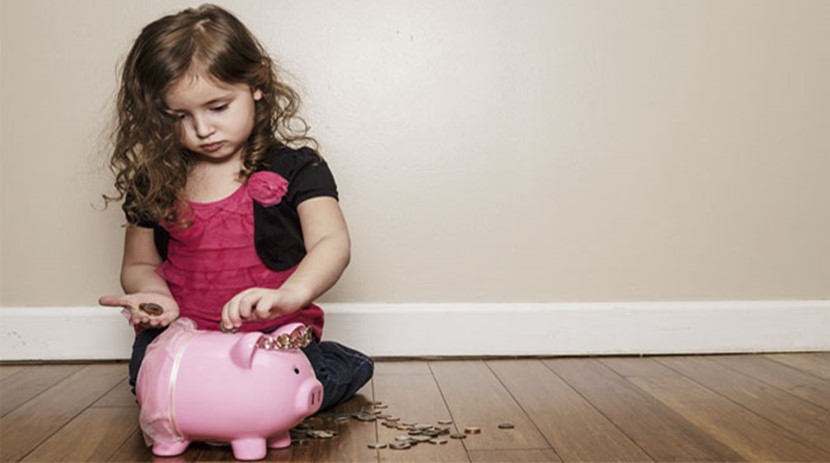Teaching kids about money

If I stop and reflect I can still clearly recall the sound of a coin dropping into my piggy bank when I was child. It was a soft kind of ‘thunk’ if the piggy bank was empty, as the coin bounced off the rubber plug at the bottom. It was an extremely satisfying kind of ‘chink’ when there was a lining of copper and silver already established. How ridiculously exciting it was to imagine that in the dark porky depths of that piggy’s stomach the potential was growing for not just a lollipop, but an entire bag of acid drops…
King Solomon once said “Train up a child in the way he should go: and when he is old he will not depart from it.” Good spending and saving habits not only make a big impact on a young child’s life now, but the financial lessons they learn today will last well into adulthood. Here are some simple ways to incorporate financial lessons into your child’s everyday life.
Open a savings account
It’s one thing for kids to see their precious money pile up in a piggy bank, but opening a savings account in their name takes it to a whole new level if they’re old enough to understand the concept of earning interest. Think carefully before refusing a child when they want to withdraw some of their savings – it might put them off saving at all.
Grocery shopping
Taking the kids shopping can be a great way to teach them the value of things. How many apples can we get for $5 compared to how many bananas? Which brand of toothpaste is cheaper? Let your child help make the shopping list and stick to it, so they can see how prior preparation can lead to better savings in the long run.
Pocket money
Giving children a regular “income” is a great way to teach them the basics of earning, spending, and saving. You can also use pocket money to help children learn the difference between their wants and needs. It’s a good idea to give them their pocket money in denominations that encourage saving, for example, if the amount is $5, give them five $1 coins and encourage them to put at least one dollar into savings.
Encourage entrepreneurship
How about selling lemonade, home baking, or plant seedlings from in front of your house? The adventure of starting a business, no matter how small, is a great financial and confidence-building lesson for kids. Young entrepreneurs learn how to develop their basic maths skills, set and achieve goals, and understand price and profit.
Decision making
Allow kids to make their own spending decisions (within reason). Whether they make good or not-so-good decisions, they’ll learn more from their own spending choices than if you just say no. Encourage them to use common sense when buying. This means doing research before buying, waiting for the right time to buy, and using the "spending-by-choice" technique. This technique involves choosing at least three other things they could spend their money on and then choosing which one to buy.

